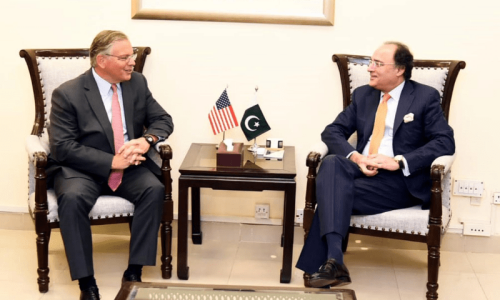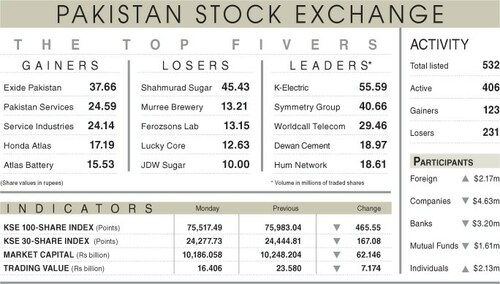RIYADH, April 5: With the world looking to explore new, feasible and sustainable alternatives sources of energy, the ongoing debate -- if the Canadian oil sands is clean enough to be used or not -- has immense connotations for the energy balance of the world.
And interestingly enough, Riyadh is getting dragged, too, in the debate.
Virtually, an unnoticed clause was added to a US energy bill, almost at the last moment, barring its government, in particular the department of defence, the major crude user in the country, from using Alberta crude because it is deemed unconventional and, too, dirty.
The American department of defence is the largest single purchaser of conventional oil in the world -- almost 300,000 barrels a day (excluding overseas imports).
A provision in the US Carbon Neutral Government Act incorporated into the Energy Independence and Security Act of 2007, effectively bars the US government from buying fuels that have greater life-cycle emissions than fuels produced from conventional petroleum sources.
The United States defined Alberta oil sands as unconventional because the bitumen mined from the ground requires upgrading and refining as opposed to the traditional crude pumped from oil wells.
The move has set into motion a series of steps by the Canadian government. Canada's Ambassador to Washington, Michael Wilson has urged the White House, State Department and department of defence to reconsider the clause, and to reclassify Canadian oil sands crude as conventional.
In a letter to the U.S administration, Wilson warned of “unintended consequences” if the law is applied.
In the letter, obtained by Greenwire -- an American online environmental policy magazine -- Wilson also noted that Canada had surpassed Saudi Arabia as the largest supplier of crude oil to the United States, at 2.3 million barrels per day. He also suggested it would be difficult to identify fuel on the US market that was 100 per cent extracted by conventional means.
As a consequence, he said, the U.S. government would be seen as preferring offshore crude from other countries over fuel made in part from US and Canadian sources.
However, despite the Canadian call, a spokeswoman from the U.S. House Committee on Oversight and Government Reform said there were no plans to redefine unconventional to include oil sands crude.
With it now being a “matter of law,” she said the government will be enforcing the clause.
Some analysts, however, are emphasising the clause was added after some political manoeuvring by Saudi Arabia as it is “increasingly threatened” by Canada’s growing market share of oil production.
Resource analyst Paul Michael Wihbey, recalling the November Opec summit, said it was then that for the first time Saudi oil minister Ali al-Naimi “took a swipe at the oil sands”.
The minister then said, “Canada is one of the world’s costliest oil producers and requires high prices to remain viable”. Al-Naimi had suggested the Saudi product was a better value for investors, claiming, it costs $40 to $60 a barrel to produce the oil sands crude from the massive reserves.














































Dear visitor, the comments section is undergoing an overhaul and will return soon.